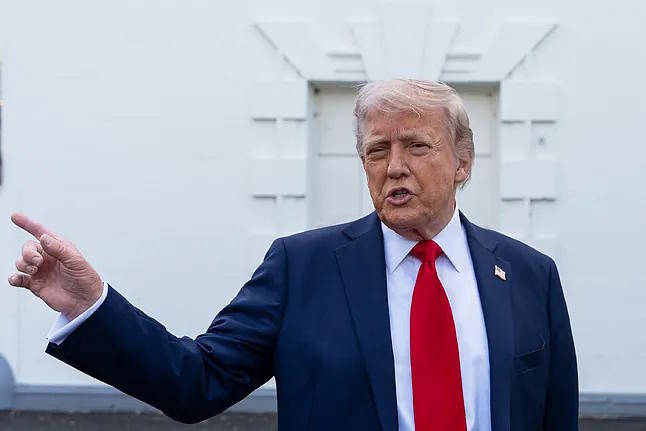Negotiations for any kind of ceasefire in Ukraine seem on the verge of collapse. The reason is the demand by the President of the United States, Donald Trump, that Ukraine accept to cede approximately 20% of its territory currently occupied by Russia.
Kiev's rejection of this idea, which in practice would reward the Russian invasion with the delivery of all that it has conquered, has triggered Washington's anger to the point that the U.S. boycotted yesterday's summit called in London to give a definitive push for peace. U.S. Secretary of State, Marco Rubio, who was supposed to attend the meeting, canceled his trip on Monday night without giving any explanation.
Meanwhile, Trump unleashed a wave of insults at Ukrainian President Volodymyr Zelenski yesterday for an interview he had given to the conservative American newspaper Wall Street Journal, where he reiterated his rejection of territorial concessions. In the message posted by Trump on his social network, Truth, the U.S. President demanded that Zelenski hand over to Russia especially the Crimea peninsula, arguing that in that territory "Russian submarine bases have been there for many years" (built to attack the United States).
In his rant, Trump repeated his favorite phrases about Ukraine, such as Zelenski "having no cards" in the game, and the country being in an "extreme" situation, although this time he did not predict an immediate defeat but rather, in an unusual lack of trust towards Russia from him, he predicted that it will take Moscow another three years to fully occupy it.
It all stems from the Washington's "final peace proposal," which was delivered to Ukraine last week. It is a one-page document with seven points that, according to British and American press, confirms the Russian occupation of the conquered territory without any counterpart in return.
The text also includes the official recognition by the United States of Russian sovereignty over Crimea, something that only 12 countries have done to date, none of them democratic, including North Korea, Belarus, Venezuela, Nicaragua, Sudan, or Eritrea. Not even the Islamic Republic of Iran or China, which are Russia's two largest arms suppliers in the war, have taken that step.
Meanwhile, in London, Rubio's sudden departure deprived the meeting of real significance. Although the U.S. envoy for Ukraine, retired General Keith Kellogg, was present, it was clear that the talks would not have major consequences. The Ukrainian delegation, led by its Foreign and Defense Ministers, held technical meetings and only stated that progress had been made, which is the standard diplomatic way of saying that no progress has been made.
The U.S. government's plan was for Zelenski's envoys to give the green light to the plan in London, after which the White House's special envoy for Russia, Steve Witkoff, would take it to Moscow for Vladimir Putin to review and approve it.
Not only did that not happen, but the few pieces of information that came out of the London meeting - which the Starmer government itself downgraded from a summit to a mere "diplomatic meeting" - pointed to new divergences. Specifically, Ukraine rejects the U.S. idea of establishing a 30-day ceasefire and instead demands a stable agreement. However, Donald Trump is well aware of the importance of political stunts for domestic politics and realizes that a ceasefire - no matter how limited or inconsequential it may be - can bring him electoral benefits. Trump has the second lowest popularity of a U.S. president in the past 80 years of polling, only above his own popularity in his first term five years ago.
Trump's proposal was supported in recent days by Rubio, who said that if a peace plan is not reached, the U.S. will abandon its efforts in that direction, and by Vice President J.D. Vance - whose antipathy towards Ukraine is well known in Washington - who said during a visit to India that it was necessary to "freeze" the conflict. That is a word that defines Vladimir Putin's strategy, who has "frozen" several conflicts in Georgia and Moldova, leaving them in a ceasefire situation, which allows him, if he wishes, to resume military actions or carry out intermittent harassment or asymmetric warfare.
